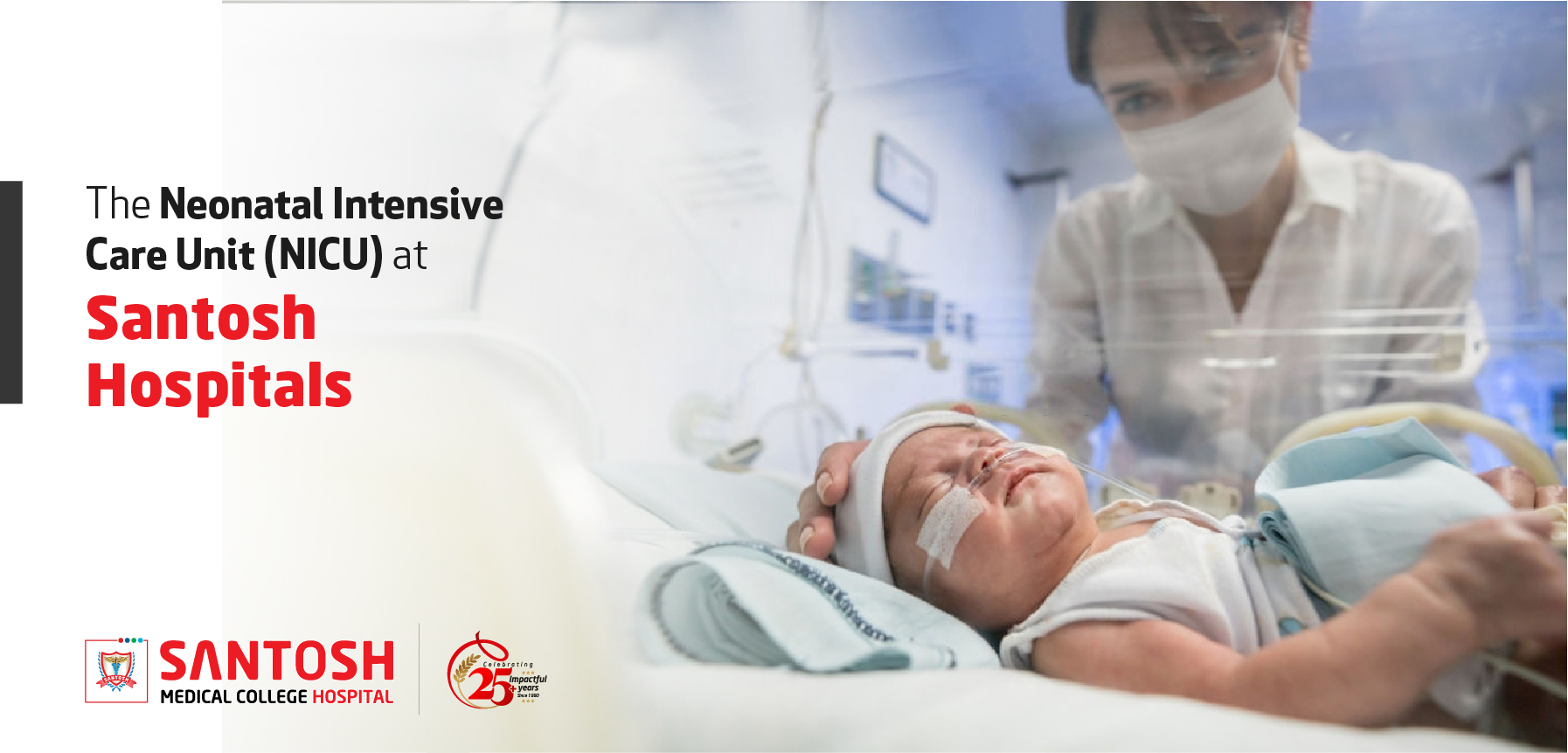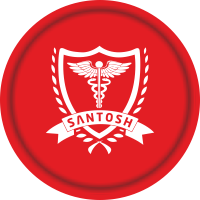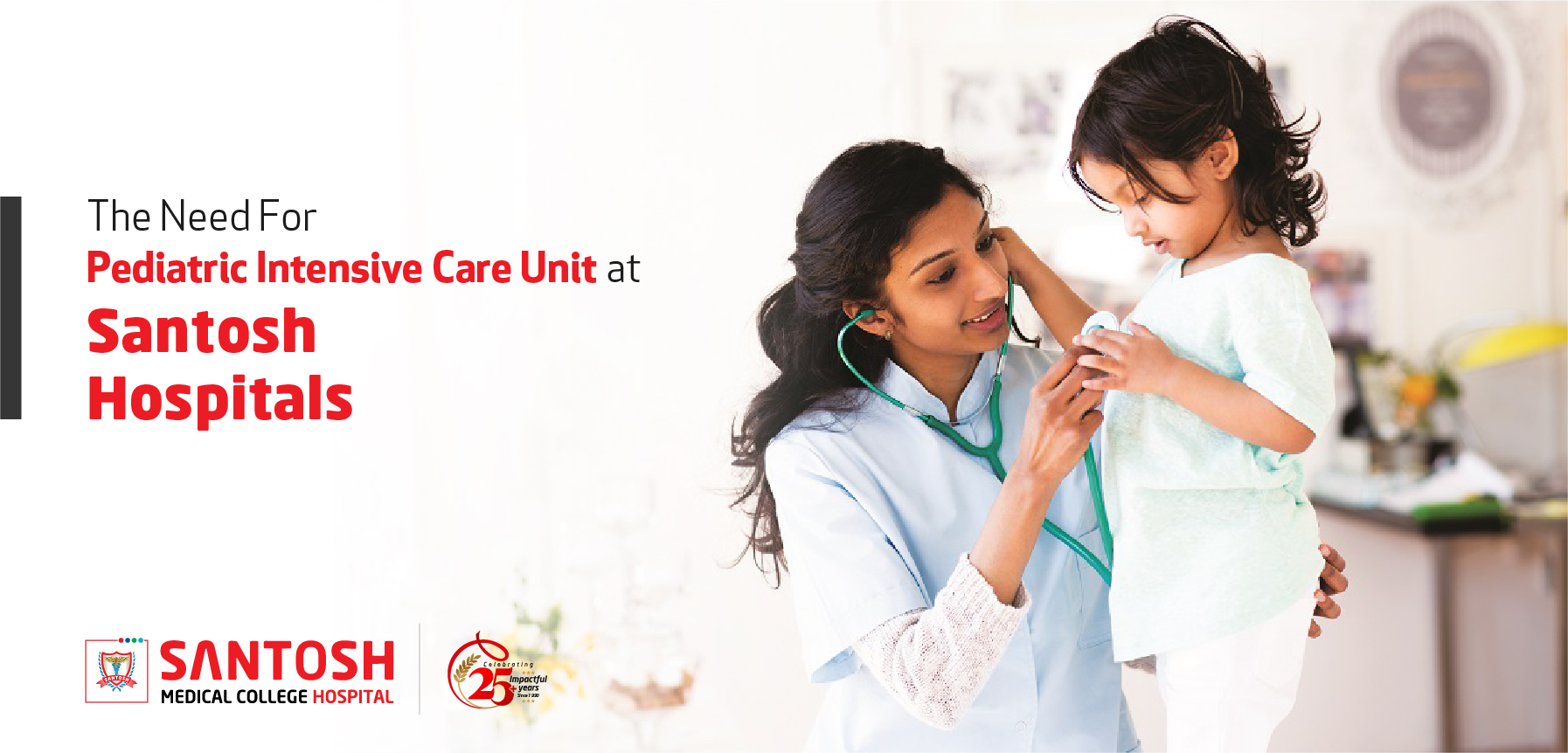Blog Details
The Neonatal Intensive Care Unit (NICU) at Santosh Hospitals
Lorem Ipsum is simply dummy text of the printing and typesetting industry. Lorem Ipsum has been the industry's

24 March 2023 | Select Doctor
The birth of a child is both a joyous and a challenging event. Both the mother and the infant go through a lot of physical and emotional changes.
A newborn must acclimatize physically to live outside of its mother's body. When a baby leaves the uterus, he or she can no longer rely on the mother's blood supply or placenta for vital physiological processes. The baby is completely reliant on the mother's capabilities before birth. Breathing, feeding, waste elimination, and immunological defence are among them. A baby's body systems must change once it leaves the womb. Consider the following scenario:
- Air must be inhaled by the lungs.
- Circulation alterations in the heart and lungs.
- Food must be processed and waste must be excreted by the digestive system.
- The kidneys must start excreting waste and balancing fluids and chemicals in the body.
- The liver and immune systems must be able to function independently.
Neonatal Care And Newborns
Newborn babies who require intense medical care are frequently admitted to the neonatal intensive care unit of a hospital (NICU). The NICU is equipped with cutting-edge equipment and highly educated medical personnel to provide specialized treatment for the youngest infants. NICUs may also have spaces dedicated to babies who aren't as unwell but still require specialized nursing care.
What Leads To A Newborn Being Admitted To NICU?
The following are some of the factors that can put an infant in danger and increase the likelihood of admission to the NICU. However, each newborn must be evaluated to determine whether or not he or she requires admission to the NICU. The following are high-risk factors.
Among the maternal variables are:
- Being under the age of 16 or over the age of 40
- Use of drugs or alcohol
- Diabetes
- Blood pressure that is too high (hypertension)
- Bleeding
- STIs (sexually transmitted infections)
- Pregnancies in multiples (twins, triplets, or more)
- Amniotic fluid levels are either too low or too high.
- Membrane rupture that occurs too soon (also called the amniotic sac or bag of waters)
The Following Are Some Of The Baby-Related Factors:
- A baby delivered at a gestational age of fewer than 37 weeks or more than 42 weeks is referred to as a premature baby.
- less than 5 pounds, 8 ounces (2,500 grams) or more than 8 pounds, 13 ounces at birth (4,000 grams)
- Modest for gestational age
- In the birth room, medicine or resuscitation
- Defects in the womb
- Rapid breathing, grunting, or stopped breathing are all symptoms of respiratory distress (apnea)
- Infections
- Seizures
- Blood sugar levels are low (hypoglycemia)
- Extra oxygen, monitoring, IV (intravenous) therapy, or medications may be required.
- Specialized treatment or procedures, such as a blood transfusion, are required.
How can Santosh Hospitals help?
At Santosh hospitals, some of the trained and competent healthcare personnel to fight the different difficulties concerning neonatal care standout:
- Neonatologist
- Neonatal fellow
- Pediatric resident
- Neonatal nurse practitioner
- Respiratory therapist
- Physical, occupational, and speech therapists
- Dietitians
- Lactation consultants
- Pharmacists
- Social workers
- Hospital chaplain.
Our Extensive Equipment Include :
- Infant warmers
- Incubators
- Phototherapy
- Monitors
- Feeding tubes
- IVs
- Ventilator
Why Prefer Santosh Hospitals NICU?
Santosh Hospital is a well-known hospital that provides a special care nursery for premature, twin, triplet, and ill babies. Our Neonatal Intensive Care Unit (NICU) is adequately prepared to deliver innovative and advanced clinical treatment alternatives that effectively address. Because our facility is uniquely equipped with innovative technology and devoted specialists to manage extremely low birth weight babies with birth weights of less than 1000gm, our low birth weight baby survival rate is similar to the best in the country.
Santosh Hospitals, as a baby-friendly facility, strongly advocates for exclusive breastfeeding in NICU infants. To provide holistic care, we allow moms to visit their babies in the NICU and to participate in their care. Mothers whose babies are in a nursery are given a free hospital bed so that they can breastfeed their baby anytime they need to.
All medical crises that necessitate a surgical technique are handled by the Department of Neonatology's professional and skilled Paediatric Surgeons. The hospital offers daily OPD treatments under the supervision of knowledgeable consultants. In addition, the division provides diagnostic and therapeutic services for a variety of diseases. To help us achieve our goal of a disease-free world, we provide comprehensive immunization services for all vaccine-preventable diseases. We employ skilled dieticians to guarantee that our regular and critical care patients have access to complete dietary support at all times.




.png)






